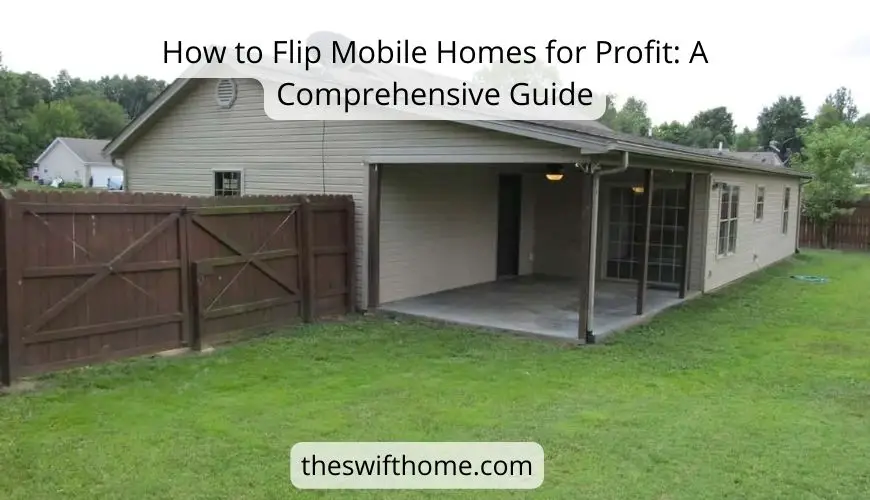Flipping mobile homes is an increasingly sought-after investment option due to the potential profits. Mobile homes, which are also referred to as manufactured homes, present the opportunity to purchase, remodel, or sell homes with a better value. How to flip mobile homes?
In this thorough guide, we’ll explore the fundamental steps and methods used to flip successful mobile houses.
What Is Meant Of Flipping Mobile Homes?
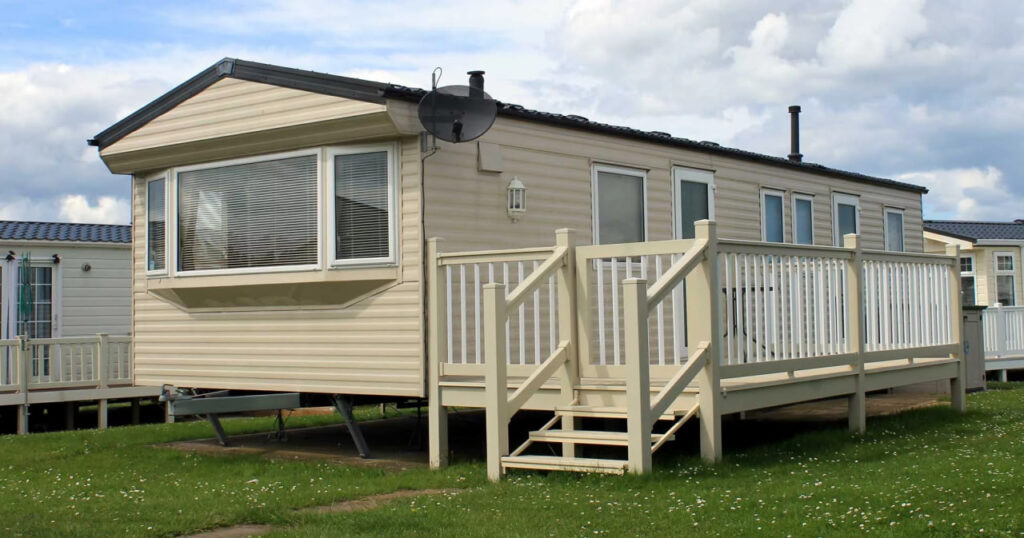
Flipping mobile houses refers to the process of purchasing mobile homes for a cheap cost, then making repairs and renovations after which they are sold for more money in an extremely short amount of time.
The aim for flipping homes is to make an income through adding value to the home through improvements and leveraging current market demand.
Flippers usually identify mobile homes in need of repair or improvements, and buy these homes for a lower price before investing the time and effort to improve the condition of their homes and increase their appeal.
After the work is completed After the renovations are completed, the mobile home will be put to the market with an offer price reflecting the additional value and improvements that were made. Flipping and renovating mobile homes into houses requires thorough market research, smart making of decisions and effective managing the project to guarantee success and profitability of the project.
Step-By-Step Guide To Flip Mobile Homes
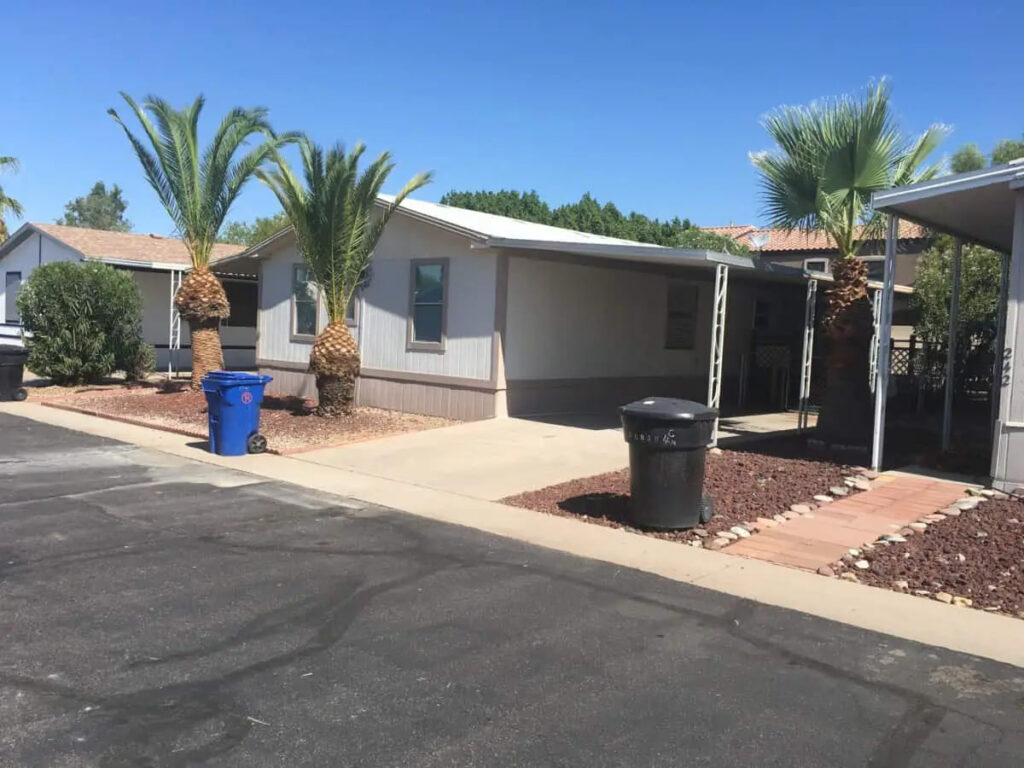
Step #1 Research and Educate Yourself
Begin by looking into the market for mobile homes local to you and get you through the process of purchasing and selling mobile houses. Learn about local laws and particular requirements to more successfully flip mobile homes and houses.
Step #2 Set a Budget
Determine your budget for purchasing mobile homes. Take into consideration not just the price of your purchase, but the cost of the renovation proper maintenance, repair as well as marketing.
Step #3 Find Potential Deals
Search for mobile homes damaged or that are overvalued. Look up for local classifieds and online platforms auctions for real estate, as well as mobile home parks, for deals that could be found.
Step #4 Assess the Property
When you discover a mobile home, take the time to thoroughly check the home. Assess its overall condition, such as the plumbing, structure electric system as well as the flooring, roof and appliances. Find any major improvements or repairs that must be made.
Step #5 Create a Renovation Plan
Create a comprehensive remodel plan that is based on the assessment you made. Find out the upgrades, repairs and aesthetic improvements that you need to boost the worth of your house. Establish a schedule for finishing the remodeling.
Step #6 Obtain Financing
Financing: explore alternative financing options that are secure for the renovation and purchase of your mobile home. Find different financing options like individual savings accounts, loan or partnerships with investors.
Step #7 Renovate and Repair
Plan your remodel to ensure you are adhering to the local building codes and rules. Concentrate on improving your mobile home’s curb appeal as well as its functionality and general appeal to prospective buyers.
Step #8 Price the Mobile Home
When the home’s renovations are completed you can determine a suitable selling price. Look up recent sales for similar mobile homes within your region to establish an affordable and profit-oriented cost.
Step #9 Market and Advertise
Plan a marketing plan that will attract buyers. Use websites, local publications as well as social media and word-of-mouth advertising to market your mobile home. The main attributes, upgrades as well as the affordability of the house.
Step #10 Negotiate and Sell
If potential buyers are interested in the deal, they can be negotiated. Make sure you are prepared for discussions and the paperwork required for closing the deal. When you have found buyers, follow the legal steps required to hand over ownership of personal property and conclude the transaction.
Be sure to adhere to the ethical and legal requirements through the whole process, such as getting the necessary permits and licences, and following fair and affordable housing regulations. It is recommended to speak with the legal and financial experts to ensure a seamless and efficient business venture in mobile flipping homes.
How to Find Mobile Homes to Flip?
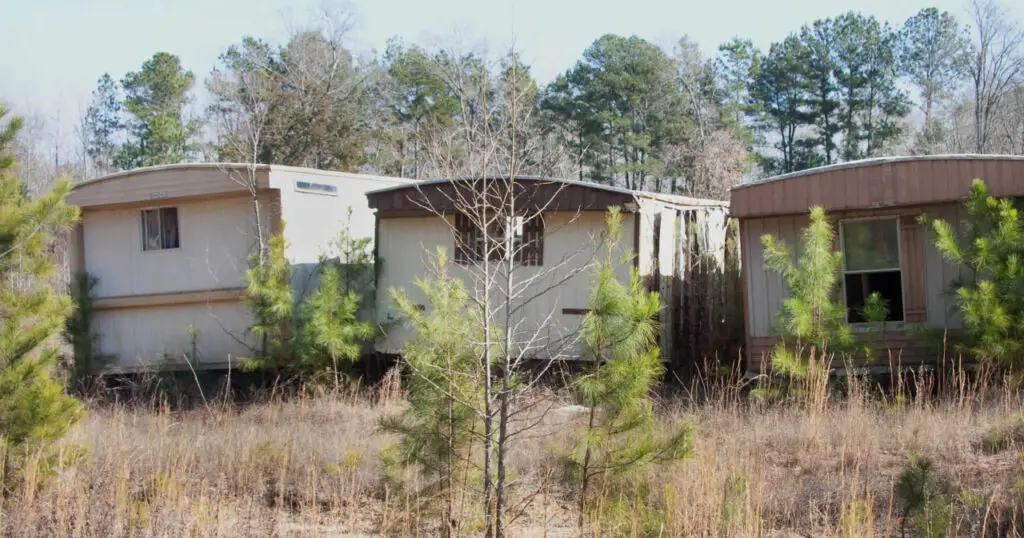
To find homes for mobiles you want to sell, you have different strategies.
1. Online Listings:
Find online real estate platforms such as classified websites and sites for mobile homes. Websites like Zillow, Trulia, MHVillage, Homes, and Redfin typically have mobile homes on the market.
2. Local Realtors and Agents:
Contact the local real estate professionals that specialize in mobile homes, or have previous experience on the home mobile market. They will help you locate the right properties to buy.
3. Mobile Home Parks:
Go to mobile home parks within your area of interest and inquire about homes that might be up for purchase or require renovating. Contact park administrators or residents with an understanding of the mobile homes for sale.
4. Real Estate Auctions:
Participate in local auctions and foreclosure sales since multiple mobile homes or houses may be part of the auctions or sales. Be on the lookout for mobile homes that may turn into flip-off possibilities manufactured homes.
5. Direct Mail Campaigns:
You could consider sending direct mail messages targeted at homeowners with mobile phones who may be considering selling. There are the mailing lists of mobile homeowners at local government offices, or from specialized data suppliers.
Potential Challenges Related to Flipping Mobile Homes
Flipping mobile homes is not without many challenges. Below are a few possible problems you might face successfully flipping mobile homes:
1- Finding Suitable Deals:
Locating mobile homes with an opportunity to make money from a flip isn’t easy. It could require an extensive amount of study, networking and investigating different options like auctions, websites, as well as mobile homes.
2- Financing:
Finding financial support for buying and refining mobile homes could be more challenging than conventional real estate market for property.
Mobile homes aren’t eligible to be eligible for traditional mortgages. As such, it is possible to consider alternatives to financing, like personal loans, or partnership with investors.
3- Renovation Costs:
The precise estimation of the cost of renovation isn’t easy, particularly in the case of hidden problems which only come to light in the course of renovation.
Inadequate repairs or unexpected costs could eat away at profits if appropriately accounted for.
4- Market Demand:
The fluctuation in the consumer demand for mobile homes could hinder your ability to sell fast in high demand, and at an attractive price.
Local developments in the market for housing, as well as shifts in consumer preferences, could affect the demand for mobile homes.
5- Local Regulations:
Mobile houses are subject to particular laws and codes which differ between different jurisdictions.
It’s important to become familiar in the regulations of your local area that govern mobile homes. This includes permitting, zoning and inspections, to guarantee conformity and prevent legal problems.
6- Holding Costs:
The costs of carrying, such as rentals, utilities as well as insurance and financing charges can mount up when the home is being put on the market.
The length of time you hold the property can deplete potential earnings, therefore it is essential to dispose of the property in a timely period.
7- Unexpected Challenges:
The flipping of mobile homes, as with other real home investment is not without risk. However, it can also come with unexpected challenges, such as difficulties with structural and electrical or plumbing issues and dealing with difficult landlords or park managers in the case of flipped mobile home or manufactured homes set within a park.
Is Flipping Mobile Homes Profitable?
Flipping mobile homes is lucrative, however it is contingent on a variety of factors like local market, the cost of purchase, the renovation all your expenses and selling prices.
1. Purchase Price:
A mobile home that is purchased at the lowest cost is vital in maximizing the potential earnings. Search for properties with low value or ones with repairs needed that are available for a bargain.
2. Renovation Costs:
Examine the budget range for renovations and repairs necessary to improve the property’s condition and enhance the value. Maintain renovation costs within a range that is reasonable to prevent over-investing and decreasing the potential profit.
3. Market Demand:
Assess the market demand for mobile homes in your region. Examine the housing market in your area for a better understanding of whether there’s an abundance of low-cost, affordable housing options or alternatives like mobile houses.
4. Selling Price:
Choose a price that is appropriate for the sale by the worth of comparable mobile homes within your region. A competitive price can attract buyers from the start as well as increase the likelihood of a successful sale.
5. Holding Costs:
Be aware of any ongoing costs during the time that your mobile house is being sold for sale, including the cost of renting out the lot, utility bills, as well as the cost of obtaining financing yourself. By reducing the cost of holding, you can to maximize the profit.
6. Marketing and Sales Efforts:
Strategies for effective marketing and advertising can be crucial in attracting prospective as well as selling mobile houses swiftly. Put time and effort into advertising your property on online sites, local advertising and social media.
7. Experience and Expertise:
Knowing and having experience with the market value for mobile homes can boost your chances of completing successful flips. Be aware of current trends, local regulations as well as renovation techniques can help you make educated decision-making.
How Much Does It Cost To Flip A Mobile Home?
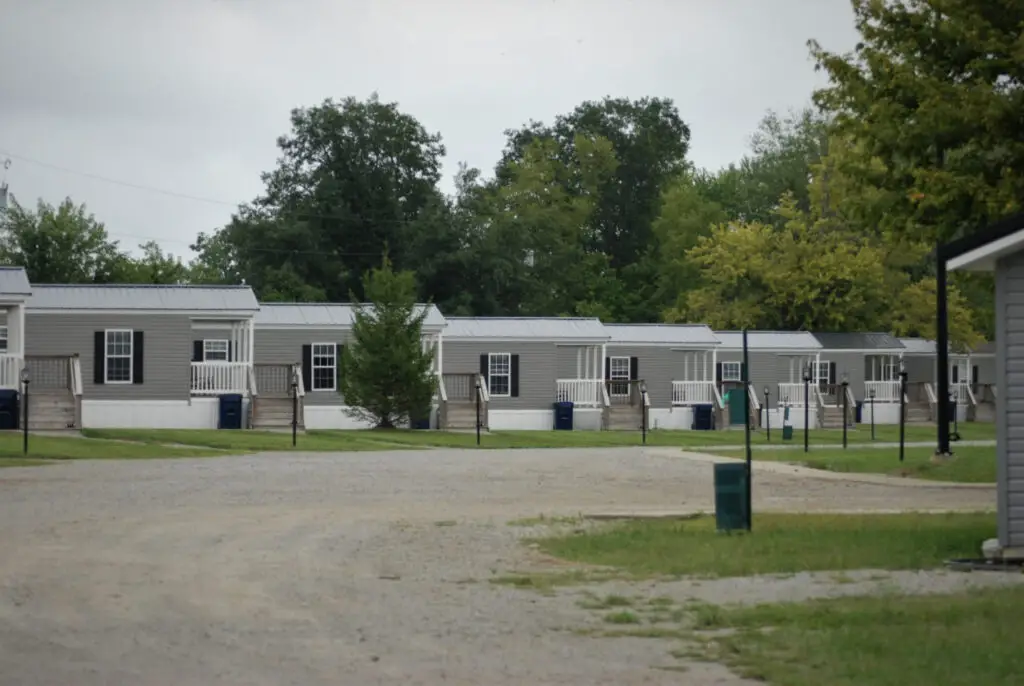
Flipping mobile homes may vary greatly based on various factors including the cost of buying or renovation cost, as well as current market conditions. In general, the costs of flipping the mobile home could range between $10,000 and $20,000.
Can You Flip A Mobile Home?
It is indeed possible to turn a mobile house. Although flipping mobile homes could be an investment option however, it takes careful analysis, planning and the execution.
Is Buying A Mobile Home Better Than Renting?
Indeed, purchasing a mobile home could give you the chance to build equity as well as an investment in the future, but renting isn’t an opportunity to create equity.
FAQ
Mobile housing is known for its relatively short remodeling time. Like single-family homes that often require extensive renovations, mobile homes have little to no maintenance. This allows you to complete the project quickly to make more money and increase profits.
The rule is simple: Buying an unresolved property should not exceed 73 per cent of its after-repair value (ARV) or the cost of the repairs.
Mobile property is available through numerous investment options such as buy or sell mobile homes. The investment options available for buying a mobile home are similar to what you do with a normal structure on permanent ground. … Build an outdoor park. … Lease Mobile Homes. … Sale of mobiles.
MHPs are one of the lowest-cost investment per unit of any property asset class and have potential better risk adjusted yields. Another advantage to investing in a mobile home or park is the lower cost to repair and maintain a mobile or manufactured home itself.

